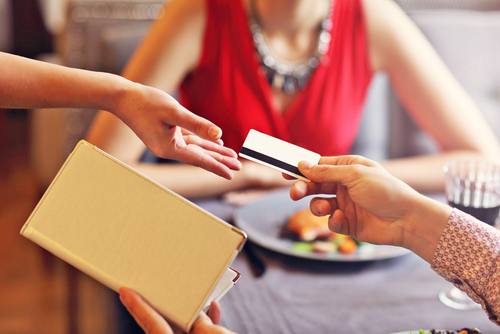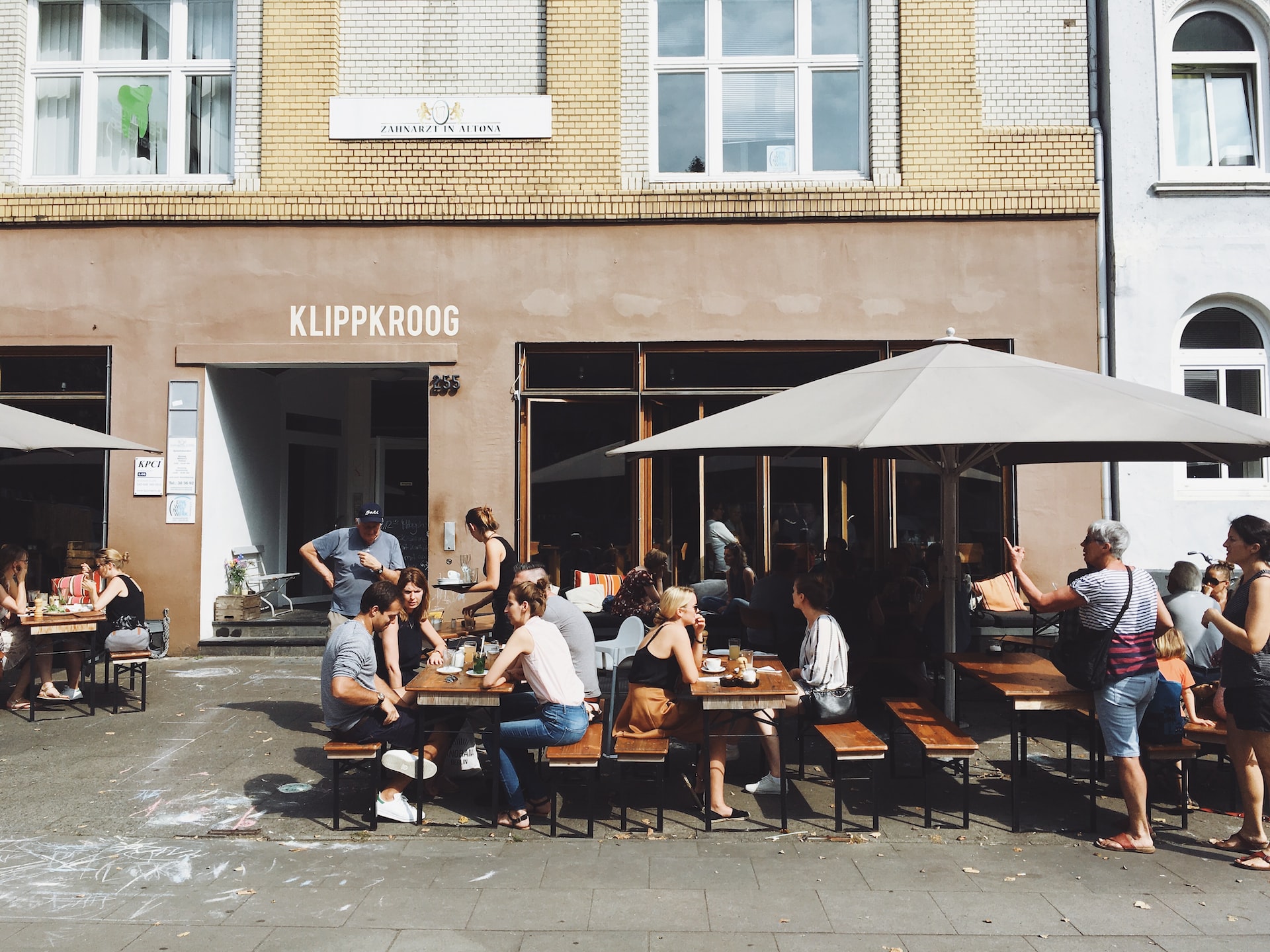A rich history, annual festivals like Oktoberfest, stunning architecture, beautiful forests, and even Bavarian pretzels are enough to bring travelers to Germany year after year. If you’re visiting Germany for the first time, you may find the culture and rules of etiquette much different from your own. Learning all you can before your arrival can help you make the most of your visit to Germany.
While you can’t possibly figure out every German nuance before your trip, it’s important to familiarize yourself as much as you can with Germany’s customs and common German words and phrases, such as “guten tag” and “auf wiedersehen” — translating to “good day” and “goodbye,” respectively — before your departure. These phrases can help you avoid any faux pas and save you from embarrassing situations and not-so-friendly looks from the locals.
Key Points
- What you should know about tipping in Germany
- How to dress the part and blend in
- How to socialize with class
- How to get around
Here, we’ll cover some important aspects of German etiquette and offer travel tips to help you blend in when visiting Germany.
The Importance of Etiquette in Germany

We know the importance of good manners. Often confused with etiquette, manners are how we carry ourselves in certain situations. Without knowing the proper etiquette for a particular area and culture, carrying out good manners becomes challenging.
Etiquette is a set of rules or codes for social situations. Knowing the code shows respect for cultural differences and promotes positive interactions with locals when visiting their country.
This article lists the do’s and don’ts while traveling in Deutschland. Many of these carry over to the neighboring countries of Switzerland and Austria. Let’s begin with a favorite of travelers — eating the local food. Below, we cover the ins and outs of tipping and dining etiquette.
When and How to Tip in Germany

Tipping or “trinkgeld” is expected in Germany, although not as extravagantly as in North America. Local Germans generally round up or add 5% to 10%. Giving a tip this low may appear cheap, especially if you’re an American and accustomed to tipping 15% to 30% for a meal or service.
Add a good tip if you received excellent service. No matter what you’ve heard, restaurant servers in Germany and elsewhere largely rely on tips. When you give a tip, never leave it on the table as you leave. Include the tip at the time of paying the server your bill.
Tipping is not just for restaurants. There are other situations you may find yourself in that a tip would be appropriate. Other people to tip might include your taxi driver, hotel maid, tour guide, or restroom attendant. Keep cash and change on hand to reward people for great service.
For tipping in Germany, showing your appreciation for someone’s service is never a bad idea.
Etiquette When Dining in German Restaurants

Guten appetit! When dining out in Germany, it’s helpful to know the restaurant and dining customs. For one, you’ll be hard-pressed if you wait to be seated. You won’t find a host or hostess waiting to seat you at a table. Just walk right in and choose a spot to sit. The social nuances don’t end there. From ordering your drink and food to paying your bill, dining customs may come as a surprise.
Don’t Expect Complimentary Water
Nothing in life is free, and in Germany, neither is water. If you’re American, you’re likely accustomed to sitting down and enjoying a glass of ice-cold water when seated. In Germany — and most other European countries — if you want water, you must request it and pay for it. By default, you can get bottled sparkling mineral water. If bubbles aren’t your thing, ask for “still” (non-carbonated) mineral water. If you think you can order tap water for free, think again. Tap water translates as “leitungswasser.” In the German language, this means plumbing water — something you bathe in, not drink. You can expect strange looks if you ask for a glass of plumbing water and pay for it, too.
What about the never-ending bread basket? Munching on complimentary loaves of bread and rolls smothered in butter while waiting for the actual meal is not common in Germany. They sell rolls and even sides a la carte. You pay for what you eat, so think hard before indulging in the breadbasket.
Prepare to Meet the Locals
You’ve heard “the more, the merrier,” right? While dining, strangers are likely to join your table. While it may seem strange initially, it’s a great way to meet new people and possibly make an international friend or two. You can even try out and practice German words and phrases with your tablemates. Of course, not everyone enjoys small talk, and Germans are known for skipping idle chit-chat. If they or you are uncomfortable with the exchange, it’s entirely appropriate to ignore one another during the meal and bid adieu when leaving.
When paying your bill, it may come as a surprise that many German restaurants don’t accept credit cards, which can put you in a real bind if you don’t have any cash on hand. If you’re unsure if the restaurant accepts credit cards, ask the server before ordering, and save you from a mad dash to the ATM.
What to Expect When Taking German Public Transportation

We know Europe for its excellent public transport system, and not owning a car is common for many Germans living in big cities, such as Berlin and Munich. Public transportation is a great way to get around quickly without spending a lot of money.
Unlike other metropolitan areas, such as London or Paris, you won’t find turnstiles (ticketing gates) in most German train stations. The honor system may tempt you to board a train without a ticket, but be warned for plain-clothed ticket-checkers demanding “fahrkarten bitte!” Which means “ticket please.” So, either cough up your ticket or pay the fine on the spot. You can only hope you have cash since credit cards are not generally accepted at train stations.
More important than purchasing your ticket, you must validate your train ticket before boarding. Ticket validation machines are typically at the entrance of the station or platform. If boarding a bus or tram, stamp your ticket when boarding. Without the time, day, and date stamp, the ticket is useless, and worse yet, you can get a fine for boarding with an unvalidated ticket.
Now that you know the logistics of public transportation ticketing, it’s important to know the social context that comes with public transportation, and if you’re not expecting it, it may catch you off-guard.
German Social Etiquette on Public Tranist
Staring will happen. You might mistake it for flirting or being just plain rude, but it happens — a lot. It’s just what Germans do, and you can’t take it personally. Well, you can, but it does no good. All you can do is join in with the people-watching game.
And personal space? Get ready to burst your body bubble. Personal space, especially in populated urban areas, is just not a thing. That said, a push, a prod, and the occasional elbow jab are likely. It’s not intentional but can happen on public transport during busy hours.
When on the train, bus, or just walking around minding your own business, do your best to blend in, don’t forget to stare at others, and remain aware of your surroundings to avoid getting in the way.
How to Dress for Each Occasion in Germany

Yoga pants, flip-flops, or sneakers won’t cut it in Germany. Germans are stylish and tend to dress more formally for work and leisure. If you want to avoid looking like a tourist, dress as the Germans do and leave the bulky socks and running shoes at home. Blending in with the locals can help keep you safe from scammers, so it can be a smart move to dress the part.
German dress code is stylish yet practical. With so much time spent on foot — and often on cobbled streets — you want to mix cosmopolitan with comfort. Jeans are fine, but make sure they are proper: no tears or print. If wearing jewelry, keep it minimal. A single statement piece is best.
If you’re traveling to Germany for work, business dress largely depends on your industry. They expect formal, conservative dress in corporate environments, while informal is the norm in IT positions.
Suanas and Nudity
And what about the times you forego clothing altogether? You heard right! Nudity has a long history in Germany and is not sexualized as you see in places like America. It’s more about liberation, freedom, and connecting with nature. So it’s not uncommon to see a naked man or woman relaxing in an East Berlin park or a person streaking through a public street.
And while nudity is not required while having a park picnic, stripping down is the norm if you visit the sauna. Public saunas are popular in Germany, and with mixed-gender sauna rooms, the first and even second or third time may feel unnerving. Fortunately, staring is impolite at the sauna, and since Germans couldn’t care less about nudity, nobody there is checking you out.
Etiquette During German Social Events

Although they’re accepting of nude bodies popping up at any time, Germans have many social rules and expect others to know them, too. When meeting others, punctuality is extremely important. Being fashionably late is considered rude, and don’t act surprised when they call you out for it.
When arriving, shake hands with everyone. A simple wave to the room does not cut it. Greet each person, and do the same upon leaving. Skipping out without saying “auf wiedersehen” is a serious faux pas and is discouraged. Be sure to address people by their family name using “Frau” for Mrs. and “Herr” for Mr.
If dining with a group in a home, biergarten, or restaurant, it is good etiquette to send a wish of good eating to everyone. “Guten appetite” is a commonly used phrase to begin a meal. If they make a toast (which is highly likely), make eye contact with the group before taking a drink. If glasses clink, make eye contact with them before taking a sip. When filling your plate, only take what you can chew. Leaving food on your plate may come off as rude to the host, particularly older generations. Be sure to compliment the chef, “das schmeckt gut!” which translates to “that tastes good!”
German Cultural Nuances to Look Out for
So far, we’ve covered the basics that you are likely to encounter while visiting Germany. Other cultural nuances to look out for when visiting Germany can help you show dignity and respect while saving you from angry looks and embarrassment. The following is a short rundown of what to do while visiting Germany.
- Avoid small talk. Germans can come across as stand-offish or rude and keep a distance from strangers. They do not mean this as a personal attack; Germans just don’t do small talk. For Germans, small talk seems like a waste of time.
- Avoid jaywalking. Cross the street on a red traffic light, and you can expect a ticket, unpleasant stares, and sometimes shouting from onlooking pedestrians, particularly parents. Even if there is no car in sight, you should wait until the crosswalk light changes.
- Avoid carrying only a credit card. Cash is king in Germany. Many places simply do not accept credit cards, and when they do, they take German credit cards only. Carry cash on you at all times to avoid getting stuck in a jam, such as paying for a meal or using a public bathroom. Yes, there is a fee for public restroom use, and they don’t accept credit.
- Avoid talking about the war. It probably goes without saying, but in case you are unaware, avoid talking about World War II. This is a sensitive subject, and although not entirely avoided by the German people, it’s just not a good conversation starter in any situation whatsoever.
Discover Germany Through VacationRenter
Where do you want to go? Find your perfect vacation rental in Germany or anywhere around the globe with VacationRenter. We help travelers discover amazing rental properties quickly and easily. Find your perfect vacation getaway with VacationRenter.